Iran Releases Iranian-French Anthropologist On Furlough
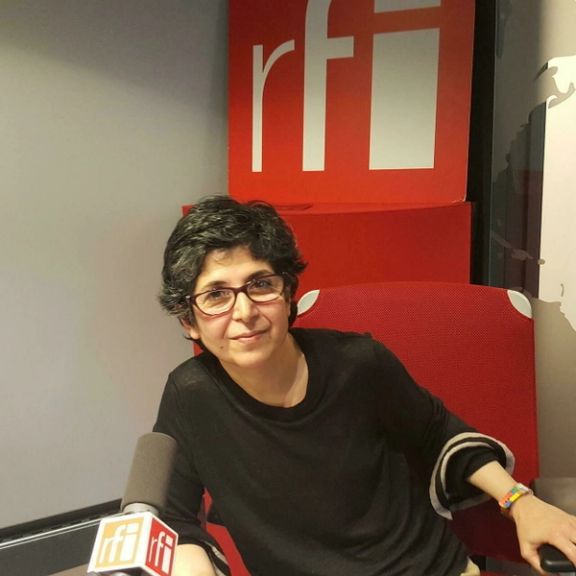
Iran has released Iranian-French academic Fariba Adelkhah on furlough for five days, her lawyer Hojjat Kermani said on Tuesday.

Iran has released Iranian-French academic Fariba Adelkhah on furlough for five days, her lawyer Hojjat Kermani said on Tuesday.
According to Emtedad website, her lawyer has expressed hope that the furlough would be extended.
She is an anthropologist who studied in France, first at Université Strasbourg II and then at the School for Advanced Studies in the Social Sciences. In 1990, she finished her PhD thesis on women in Iran, titled "an anthropological approach of post-revolutionary Iran: the case of Islamic women."
Adelkhah was detained by the Islamic Revolutionary Guard Corps in the Spring of 2019 and was sentenced to more than six years in prison over vague charges such as collusion against the national security and propaganda against the state.
She was arrested along with Roland Marshall, another French researcher who was visiting Iran to meet with Adelkhah. The two had petitioned prison authorities to allow them to get married. Marshall was released from Evin prison on March 2020 in a prisoner swap with Jalal Ruhollah-Nejad, who was imprisoned in France over helping Iran import military technology in violation of US sanctions.
Foreign governments and human rights organizations have accused Iran of detaining foreigners and dual nationals on trumped up charges to use them for getting concessions from Western countries. Iran also holds citizens of several countries, including the US, France, Germany, Austria, and Sweden, on such charges as de facto hostages.
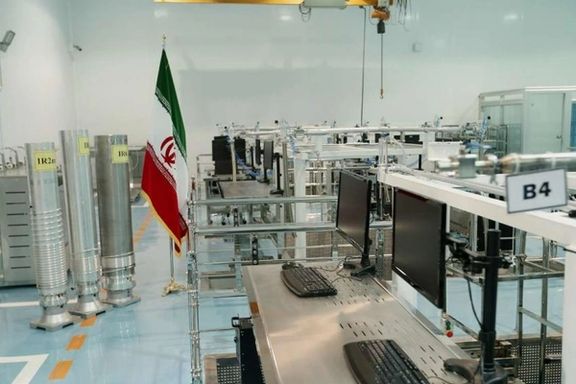
Sweden has expressed concerns about the reduction of monitoring by the UN watchdog, the International Atomic Energy Agency (IAEA) over Iran's nuclear activities.
In a Monday statement at the United Nations’ 10th conference to review the Nuclear Non-Proliferation Treaty (NPT) in New York, Sweden said, “The situation with regard to Iran’s safeguards agreement remains a matter of grave concern. Iran is pursuing highly proliferation-sensitive activities with no credible civilian use, and IAEA verification is circumscribed since Iran stopped implementing the Additional Protocol last year.”
Referring to the latest report by the IAEA director general, the statement said there are signs of nuclear material and related equipment having been shipped off to locations unknown and the agency is no longer able to verify the correctness and completeness of Iran’s nuclear material reporting, unless Iran engages seriously in helping the agency determine the fate of such material and equipment.
Urging Iran to provide the IAEA with all the information it requires, and to implement the resolution adopted by the IAEA Board of Governors in June, it added that the full and effective implementation of the Joint Comprehensive Plan of Action is urgently needed in order to strengthen the NPT as well as international peace and security.
“Sweden is deeply concerned about Iran’s continuing contravention of the JCPOA and the proliferation consequences they bring,” it said calling for an immediate reapplication of the Additional Protocol as well as the voluntary verification measures foreseen in the JCPOA and commends the IAEA’s crucial verification work in Iran.
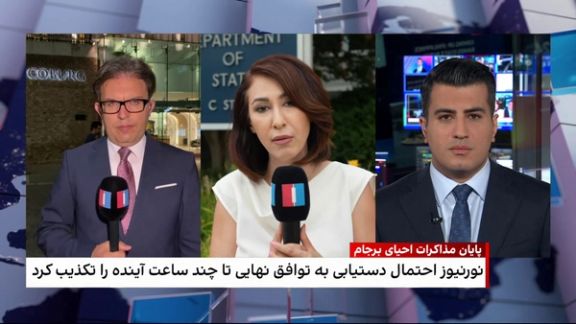
Foreign based broadcasters dominate the news and information market in Iran, with Iran International TV leading the way, a newspaper in Tehran said Monday.
Shargh Daily, a reformist and relatively independent newspaper in an article urging the government to be more tolerant of media and criticism pointed out that currently four major international broadcasters are the most popular sources of news and information for the people in Iran.
The BBC Persian Service, Iran International, Manoto and the Voice of America are influential the article said, “with Iran International getting ahead by employing anchors and journalists who left Iran and having an impact on public opinion in the country.”
The article, penned by Ghader Bastani and coinciding with Iran’s ‘Journalist Day’ has urged the government to give freedom to media “as the most effective way to fight corruption and improve government efficiency.” Increasing pressures on journalists and the closure of many independent publications have pushed many talented reporters to leave Iran, Shargh has argued. These journalists have gone to work for foreign-based Persian media and have become opponents of the Islamic Republic, it said.
In fact, government media outlets and those controlled by pro-government conservative groups are not considered as reliable sources of news and foreign-based media have stolen the spot, Shargh said, and urged the government to encourage and help “professional journalism.”
Iran International is the newest member of foreign-based Persian broadcasters. It was established in May 2017 and last year an opinion survey conducted among Iranians showed that it has gained the largest percentage of news audience in Iran.
A poll conducted by Gamaan polling agency in the Netherlands in 2021 found Iran International TV (33% audience) and Manoto TV (30%), both based in London, as the most popular media outlets in Iran.
The poll with a representative sample of over 27,000 individuals, 92 percent of those who took part said they get their news and information about Iran and the world from social media, 41% from satellite television stations, 32% from news websites and 14% from the Iranian state television on a daily basis.
Iran has one of the world’s worst media and internet censorships, with tens of thousands of websites blocked since the early 2000s and most social media platforms banned. In the absence of free media and the very high level of censorship, many Iranians turn to social media for political news and information.
Some 60 percent of those contacted by Gamaan said they never watch the news on the Iranian state-run television, the agency said, adding that generalization of the results of the survey to the general public are valid by a 95% coefficient.
Those taking part in the survey were literate Iranians over 19 years of age, representative of 85 percent of the adult population in Iran.
According to the findings of the survey, 33% respondents in the poll said they watch the Iran International TV daily. This makes the network the most popular Persian speaking foreign based news channel in Iran.
Next on the popularity ladder were Manoto TV with 30%, BBC Persian TV with 17%, both London-Based, as well as Jam TV, based in Turkey, with 16.5%, followed by the Iranian state TV at 16 percent, the Washington-based VOA TV also known as PNN with 11 percent popularity.
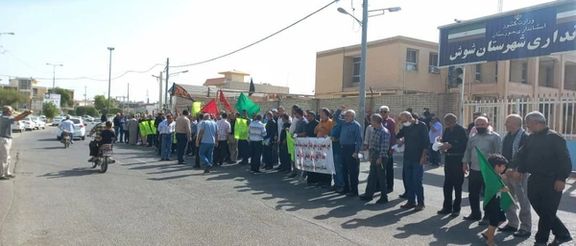
Iranian pensioners held nationwide demonstrations on Tuesday in protest to the government’s decision to a 10-percent increase in payments while the inflation rate stands at 55 percent.
Retirees in several cities, including Esfahan and Arak in central Iran as well as southern cities of Shush, Shushtar, Hafttapeh, and Ahvaz, gathered outside governors' offices or provincial offices of Iran’s Social Security Organization to denounce the government's move to ignore decrees by the Supreme Labor Council, which had stipulated a 38-percent increase in the minimum wage. They are demanding pension increases on par with rising prices of essential foods.
The protests took place as temperature has risen to more than 50 degrees Celsius – about 122 in Fahrenheit scale – in many cities across the southwestern oil-rich Khuzestan province.
A union for contract workers of the oil sector said on August 6, that 35 workers of Abadan refinery in southern Iran passed out due to the heat, and were taken to hospital.
Amid a dire economic situation in Iran that has been worsening in recent months, at least 10 workers have committed suicide in the last three months due to dismissal from their jobs and "livelihood problems".
With food prices rising faster after four years of United States’ ‘maximum pressure’ sanctions, Iranian workers and retirees have been holding regular protests or strikes to demand higher salaries. In June, Iran’s currency fell to a historic low of 333,000 rials to the US dollar.
During the past weeks, widespread protests by workers,shop owners, and teachers protesting against poverty, inflation, and low wages, have been met with heavy-handed crackdown and numerous arrests by the security forces.

Iran’s Foreign Minister Hossein Amir-Abdollahian and the European Union foreign policy chief discussed Monday the latest round of Vienna nuclear talks that ended without an agreement.
In phone call with Josep Borrell, Amir-Abdollahian reiterated that all parties involved in the talks must take serious steps toward reaching the final text of an agreement, while four days of talks in Vienna ended with a “final” text presented by the EU to all parties.
Iran insists that the text offered for renewing the 2015 nuclear deal is not a final agreement but European officials described the document to journalists as a ‘take it or leave it’ offer for both sides. American and Iranian diplomats left Vienna Monday after the European chair of talks offered a fresh and “final” text for renewing the deal.
“Iran’s views and considerations on the ideas offered by [Borrell’s deputy] Enrique Mora have been conveyed to him and all parties [to the deal] are expected to show seriousness and resolve in order to achieve the final text of the agreement,” Amir-Abdollahian said.
Expressing hope that the path to a final agreement would be paved through realism, he added that any final agreement must meet the rights and interests of the Iranian nation and guarantee sustainable and effective removal of sanctions on the Islamic Republic.
According to IRNA, Borrell said he believes that relative progress has been made during the latest round of the talks, which he described as positive. Borrell also said he would continue efforts to bring the viewpoints of all parties closer to reach a good result.
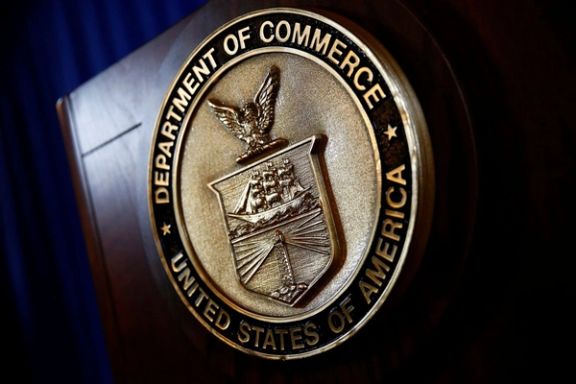
The US Department of Commerce has charged China’s largest telecommunication company Far East Cable of helping another company hide its dealings with Iran in violation of sanctions.
According to a document released on Monday, the Bureau of Industry and Security Office of Export Enforcement issued an administrative charging letter against Far East Cable on July 29, 2022.
"The Charging Letter alleges that Far East Cable signed contracts with Zhongxing Telecommunications Equipment Corporation (ZTE), and Iranian telecommunications companies to deliver US-origin equipment to Iran as part of an effort to conceal and obfuscate ZTE’s Iranian business from US investigators," the document read, charging Far East Cable with 18 violations of Export Administration Regulations.
From September 2014 to January 2016, Far East Cable served as a cutout between ZTE which was under investigation by the US government for connections with Iranian telecommunications companies.
In March 2017, ZTE pleaded guilty for its conduct related to these charges and broader violations of US export controls. ZTE paid a combined penalty of $1.19 billion in criminal and administrative fines at the time.
In July, the US Treasury issued sanctions on a new array of individuals and entities that help the Islamic Republic of Iran sell its petroleum and petrochemical products, and in June, the US sanctioned several Chinese, Emirati and Iranian firms over exporting the country’s petrochemicals.